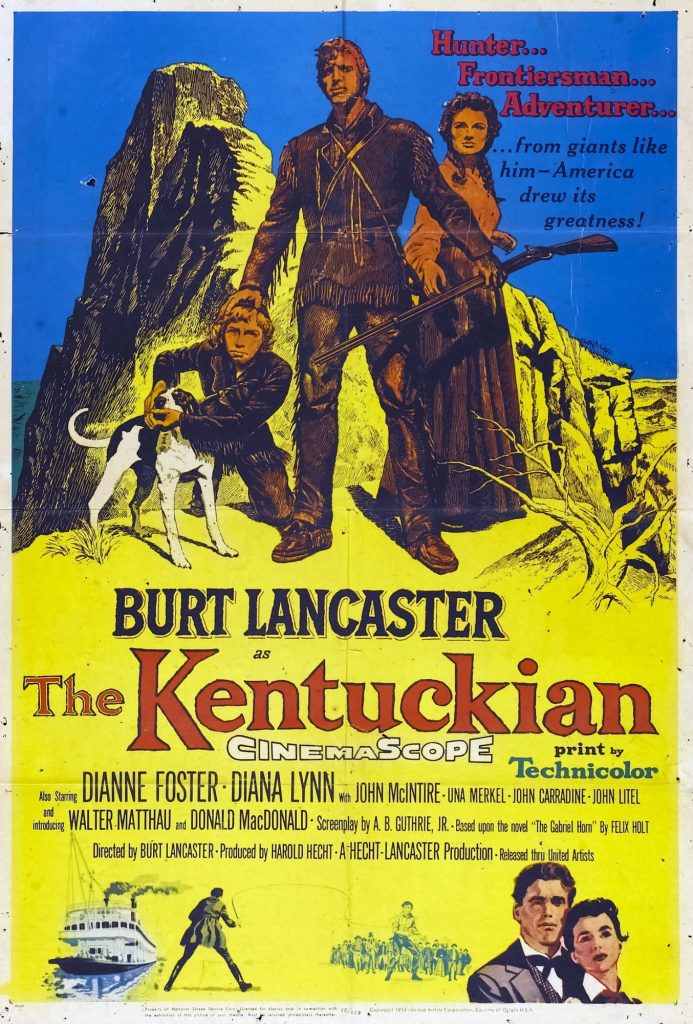

I was going to give this film four, or maybe four and a half stars. But when it finished, I knew that I loved it. And very little in life – this film included – is perfect. So it’s the full five. I really love this film.
And one of the main reasons – actually in reality several strands, but let’s keep things simple – is also the reason a lot of folk (e.g. this movie has, at the time of posting this, a score of just 14% on rotten tomatoes!) don’t like it.
And that’s the fact it’s not a typical gunslingin’ type Western. Set in Kentucky, it could be said, rather, to be an Eastern!
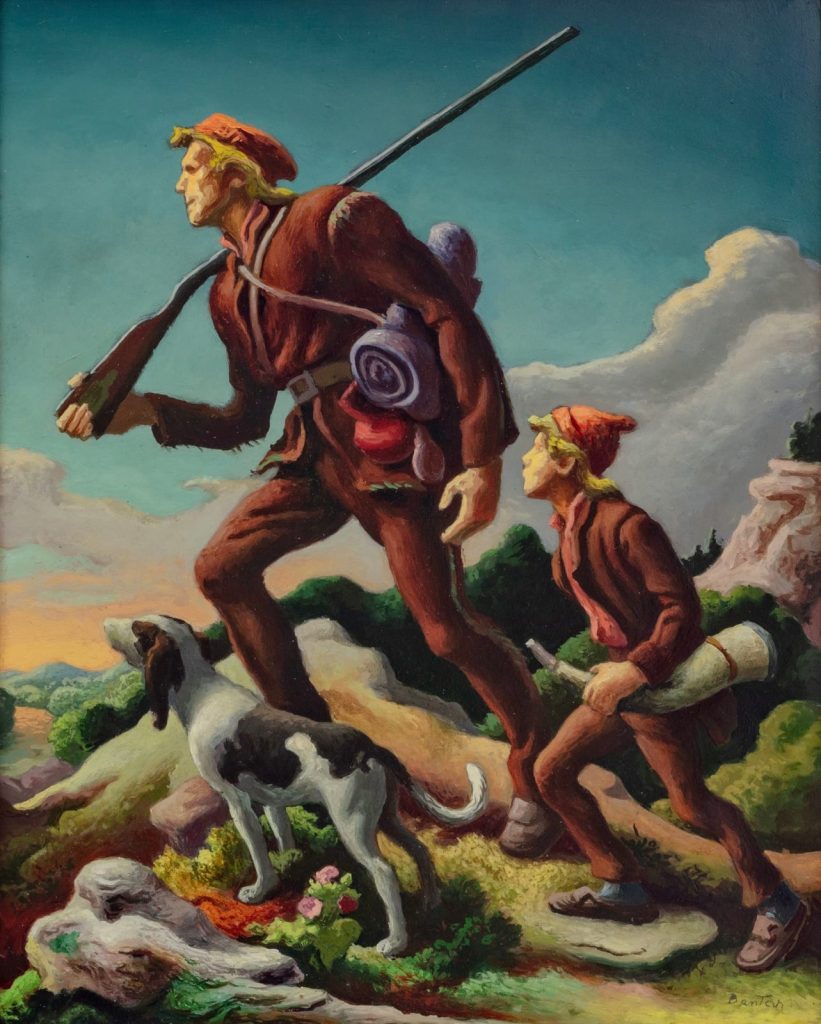
I love this movie. Sure it’s a bit hokey. But it’s very unlike most Westerns. In fact it’s not really a Western, at all. Or certainly not in the usual sense. And the folk who judge it as such are way off the mark.
It’s actually a story about human relationships. And a father and son relationship is at the heart of it all. The fact that it’s about a father and son trying to seek their fortune in Texas, and that it’s set in frontier era America.
Burt not only stars in this film. He also directed it. And I think he did a terrific job. But then I’m really quite sentimental. I know that it’s a very cornball take on a certain view of a certain time in American history. But it has a great deal of intrinsic value. And I pity those that can’t see that. They’re really missing out.
This film has heart. Soul, even. It’s about humanity. At its best and at its worst. It’s about visions of what humanity is, and what it might be. What humans do to each other, to control each other, conform, and suchlike. These are good themes.
And these are themes that are disappearing from mainstream film, and entertainment more broadly, as it becomes ever more shallow, and – of the irony – conformist.
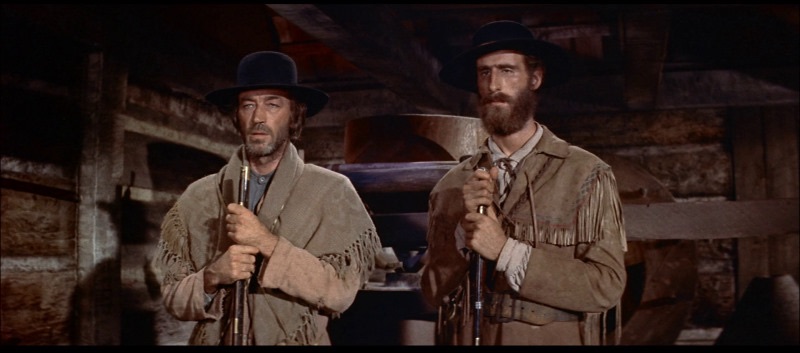
There are elements of the trad Western in the mix. The McGuffin driving the plot is a blood feud between the Wakefield’s, and the Fromes. Big and little Eli (and their pooch) are being pursued by the relentless cold hearted Frome brothers.
The charm of the film works on numerous levels: it’s beautifully filmed, with beautiful actors; the music (Bernard Hermann, no less!) is great. The script, if a little hokey – the dialect is a bit like a Yankee equivalent of Dicjens rendering the British working classes – is very good.
One of the strongest cards the film plays is a kind of mytho-poetic meeting of and conflict between salt of the earth goodness, and various forms of so-called civilised compromise or corruption. Even the name of the town, Humility, where they wind up stopped on their odyssey to Texas, is redolent with this parable like quality.
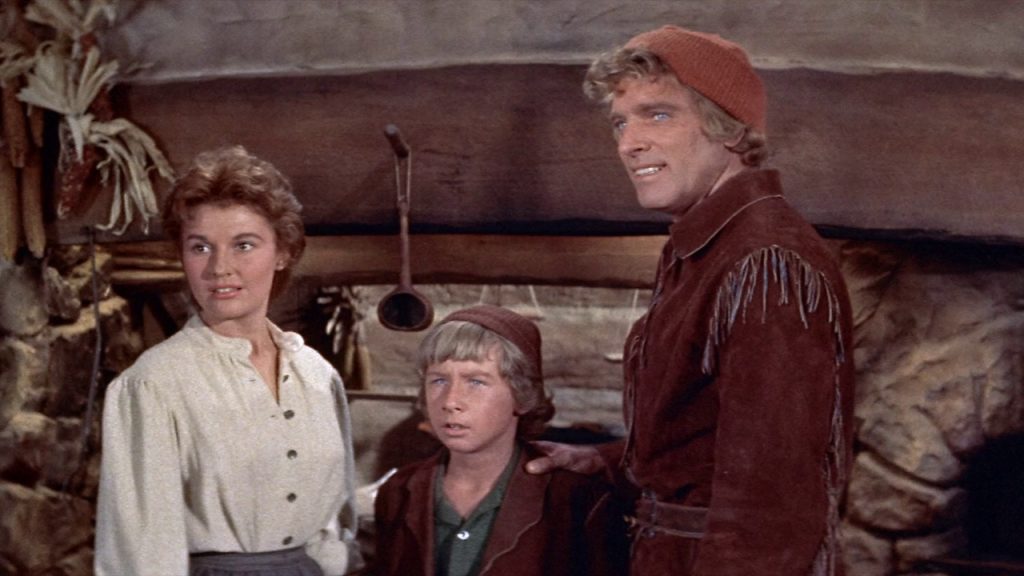
Lancaster’s physical charisma, or more bluntly, his masculine beauty, is powerfully on display here. And Donald MacDonald, as Little Eli, is perfectly cast, as the literal ‘mini-me’ child. Father and son not only look (and dress) alike, but allow the story to compare and contrast how man and boy react to their experiences.
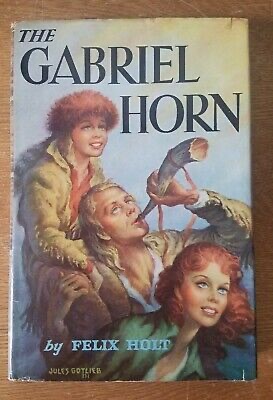
The story is based on the book, The Gabriel Horn. And this rather Freudian symbol of manhood figures large in the movie. Once again operating more on the level of folk tale or parable than documentary history.
Another charming aspect of this film is how it embodies a loving homage to a bygone era, of both optimistic colonialism, and the minutiae of American life at that time. so called revisionist Westerns would come along later, to look at the darker sides of these times. But this is – despite several grittier threads (the blood feud; innocence vs corruption, etc.) – for the most part, a celebration of a semi-mythical past.
Having said all of this, this tale of an epic colonial trek is, for brief moments, shockingly violent. But it’s done in a very tame or sanitised way, by the standards of our own times. And in this particular respect, whilst the film as a whole is more myth or parable, it’s actually a helluva lot more realistic than most macho fantasy gunslingin’ Westerns.
Having just used the term macho, it behooves me to address the feminine aspect of the film, as beautifully embodied in the forms of Hannah Bolden (indentured, or white slave girl), on the wilder side, and Susie Spann (school mistress/teacher, in Humility, played by Diana Lynn), as the more tamed or civilised femme.
As a dewy-eyed romantic, I love how this aspect of the film is handled. But ladies might find it less attractive nowadays? I don’t know… There’s a degree of male fantasy at okay: Big (and noble/beautiful) Eli gets his pick of the squaws here!
Having just referred to the indigenous folk of the US, it’s worth noting they are – from what I recall (writing this the day after viewing) – entirely absent from this very romantic rendering of 19th C. America. And ‘the negro’ is only represented by a troop of singing and dancing performers, on the riverboat. This latter vessel is almost a character deserving its own credit in the film.
One of only two movies Lancaster directed (what’s the other?), I love it. And it makes one wonder what else he might’ve done. Given the opportunity.
PS – There’s a few good articles about the film/DVD online, such as here, or here.
